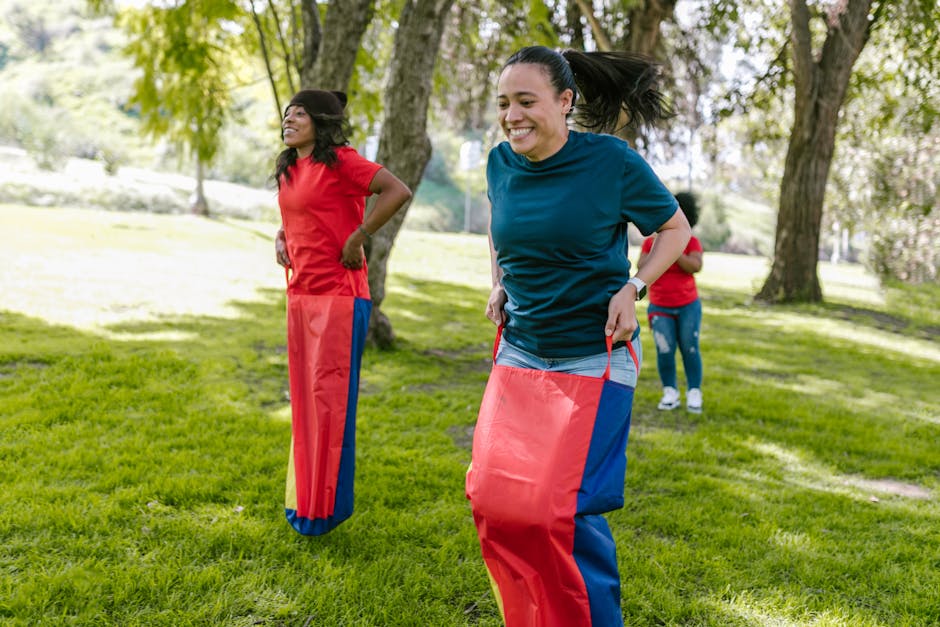How To Handle Competitiveness In Friendships?
Friendships are supposed to be a safe haven—a place where you can be yourself without fear of judgment or rivalry. But what happens when a friend starts competing with you instead of supporting you? Handling competitiveness in friendships can be tricky, but it’s not impossible. By understanding the root of the issue and taking thoughtful steps, you can protect your emotional well-being while maintaining healthy relationships.
Let’s dive into why competitiveness arises, how to spot it, and what you can do to address it without losing your cool.
Key Takeaways
- Competitiveness in friendships can be healthy or unhealthy, depending on its impact.
- Recognizing the signs of a competitive friend is crucial for addressing the issue.
- Open communication, boundary-setting, and mutual support are key to resolving conflicts.
- Sometimes, walking away from a toxic friendship is the best choice.
Understanding Competitiveness in Friendships
What is competitiveness in friendships?
Competitiveness in friendships occurs when one or both friends feel the need to outdo each other. It might show up as subtle comparisons, constant one-upping, or even jealousy. While some level of competition can motivate personal growth, excessive rivalry can strain the relationship.
Why does competitiveness arise among friends?
Competitiveness often stems from insecurity, envy, or a desire for validation. For example, if your friend feels inadequate, they might try to prove their worth by outperforming you. Social media can also fuel this behavior, as people often compare their lives to others’ highlight reels.
The difference between healthy and unhealthy competitiveness
Healthy competitiveness pushes both friends to grow and achieve their goals. It’s like a friendly race where you cheer each other on. Unhealthy competitiveness, on the other hand, feels more like a tug-of-war—draining, stressful, and emotionally exhausting.

Recognizing Signs of a Competitive Friend
Downplaying your successes
Does your friend brush off your achievements with comments like, “That’s not a big deal” or “Anyone could do that”? This could be a sign of jealousy or insecurity.
Passive-aggressive or backhanded compliments
Statements like, “You’re so lucky you don’t have to work as hard as I do” might seem harmless, but they often mask deeper feelings of rivalry.
Constant one-upping behavior
If you share good news, does your friend immediately try to top it with their own story? This need to outshine you can be exhausting.
Copying your actions or decisions
Imitation might be the sincerest form of flattery, but when a friend starts mimicking everything you do, it can feel invasive.
Sabotaging or undermining you
In extreme cases, a competitive friend might go out of their way to make you look bad or prevent you from succeeding.

The Impact of Competitiveness on Friendships
Emotional toll on both individuals
Constant competition can leave you feeling drained, anxious, or even resentful. It’s like carrying a backpack full of rocks—you might not notice the weight at first, but over time, it becomes unbearable.
Strain on trust and communication
When competitiveness takes over, it’s hard to trust your friend’s intentions. You might start second-guessing their words or actions, which can lead to misunderstandings.
Potential for long-term damage to the relationship
If left unchecked, competitiveness can erode the foundation of your friendship, making it difficult to repair.

How to Address Competitiveness in Friendships
Reflecting on your own feelings and actions
Before confronting your friend, take a moment to examine your own behavior. Are you unintentionally contributing to the rivalry? Self-awareness is key to resolving conflicts.
Approaching your friend about their behavior
Choosing the right time and place
Pick a calm, private setting where you can talk without distractions. Timing matters—don’t bring it up in the middle of an argument or a stressful situation.
Using “I” statements to express your concerns
Instead of saying, “You’re always competing with me,” try, “I feel hurt when it seems like we’re in constant competition.” This approach reduces defensiveness and encourages open dialogue.
Setting boundaries to protect your emotional well-being
If your friend continues to be competitive despite your efforts, it’s important to set clear boundaries. For tips on how to do this effectively, check out this guide on setting healthy boundaries.

Strategies for Maintaining Healthy Friendships
Encouraging mutual support and celebration of successes
Celebrate each other’s wins without comparing them to your own. A simple “I’m so proud of you!” can go a long way.
Focusing on collaboration rather than competition
Instead of competing, find ways to work together toward shared goals. This fosters a sense of teamwork and strengthens your bond.
Practicing open and honest communication
Regularly check in with your friend to address any underlying issues. For more advice on resolving conflicts, visit this conflict resolution guide.
Knowing when to walk away from a toxic friendship
Sometimes, despite your best efforts, a friendship becomes too toxic to salvage. Letting go can be painful, but it’s often necessary for your mental health.

Dealing with Judgmental or Harsh Comments from Friends
Understanding the root of their behavior
Harsh comments often stem from insecurity or unresolved issues. Try to empathize with your friend while standing your ground.
Responding calmly and assertively
Instead of snapping back, respond with calm, assertive statements like, “I don’t appreciate that comment.”
Deciding whether to address or ignore the comments
Not every comment needs a response. Sometimes, it’s better to let minor remarks slide to avoid escalating the situation.

Handling Friendship Conflicts Like an Adult
Staying calm and composed during disagreements
Take a deep breath and keep your emotions in check. Losing your temper will only make things worse.
Listening actively to your friend’s perspective
Show that you value their feelings by listening without interrupting. This can help de-escalate the conflict.
Finding a resolution that works for both parties
Aim for a compromise that respects both of your needs. For tips on managing emotions during conflicts, read this article on emotional regulation.
Moving Forward After Resolving Competitiveness
Rebuilding trust and strengthening the friendship
Rebuilding trust takes time, but small gestures like showing appreciation can help.
Learning from the experience to prevent future issues
Reflect on what you’ve learned and apply those lessons to other relationships.
Fostering a positive and supportive dynamic
Focus on creating a friendship where both of you feel valued and supported.
When to Reevaluate the Friendship
Recognizing when the competitiveness is too damaging
If the rivalry is causing more harm than good, it might be time to reconsider the friendship.
Understanding that it’s okay to let go of toxic relationships
Letting go doesn’t mean you’ve failed—it means you’re prioritizing your well-being.
Moving on with grace and focusing on healthier connections
Surround yourself with people who uplift and inspire you. Life’s too short for toxic friendships.

Friendships are meant to be a source of joy, not stress. By addressing competitiveness head-on and fostering a supportive environment, you can build stronger, healthier relationships. And remember, it’s okay to walk away if a friendship becomes too toxic—it’s all part of protecting your peace.
For more tips on building strong friendships, check out this guide.
Navigating Friendships with Grace: FAQ on Handling Competitiveness
What causes competitiveness in friendships?
Competitiveness in friendships often stems from insecurities, comparisons, or societal pressures to achieve certain milestones. It can also arise when friends share similar goals or interests, leading to unintentional rivalry.
How can I identify if competitiveness is affecting my friendship?
Signs include constant comparison, feelings of jealousy, or a sense of rivalry in achievements. If interactions feel more like a competition than a supportive bond, competitiveness may be at play.
Is competitiveness always harmful in friendships?
Not necessarily. Healthy competition can motivate and inspire growth. However, when it leads to resentment, jealousy, or a breakdown in communication, it becomes harmful.
How can I address competitiveness without hurting my friend’s feelings?
Approach the topic with empathy and honesty. Use ‘I’ statements to express your feelings and focus on strengthening the bond rather than assigning blame. For example, ‘I feel like we sometimes compare ourselves too much, and I value our friendship more than that.’
What are some strategies to reduce competitiveness in friendships?
Focus on celebrating each other’s successes, set boundaries, and practice gratitude for the friendship. Open communication and shifting the focus from comparison to collaboration can also help.
How can I manage my own feelings of competitiveness toward a friend?
Reflect on the root cause of your feelings and work on building self-confidence. Remind yourself that everyone’s journey is unique, and your friend’s success does not diminish your own potential.
Can competitiveness ever strengthen a friendship?
Yes, when approached positively, competitiveness can encourage mutual growth and push both friends to achieve their best. The key is to maintain respect and support for each other throughout the process.
What should I do if competitiveness leads to conflict in the friendship?
Address the conflict calmly and openly. Acknowledge each other’s feelings and work together to find a resolution. If needed, take a step back to reflect and rebuild the friendship on healthier terms.
How can I ensure my achievements don’t unintentionally make my friend feel competitive?
Share your successes with humility and encourage your friend in their endeavors. Avoid excessive boasting and focus on mutual support rather than comparison.
When is it time to reconsider the friendship due to competitiveness?
If the competitiveness becomes toxic, leads to constant negativity, or undermines your self-esteem, it may be time to reevaluate the friendship. Healthy relationships should foster growth and positivity, not stress or resentment.



